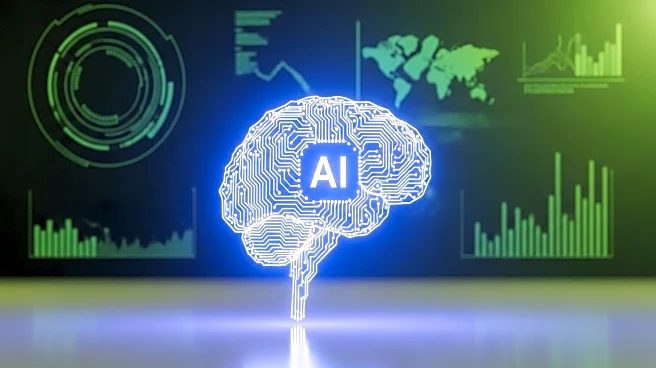What is the story about?
What's Happening?
A Stanford University study has found that AI is significantly affecting early-career job opportunities, particularly for workers aged 22 to 25 in AI-exposed fields. The research indicates a 13% decline in employment for young workers in these sectors, while employment for older workers remains stable or grows. The study suggests that AI is being used to automate tasks typically handled by entry-level employees, potentially leading to a 'lost generation' of workers unless policy and hiring practices adapt. The findings underscore the need for a shift from AI automation to augmentation and collaboration.
Why It's Important?
The study's findings highlight the challenges faced by young workers entering the job market in an era of rapid AI adoption. As AI continues to automate tasks, entry-level positions that provide essential training and experience are at risk. This could have long-term implications for workforce development and economic stability. The research calls for a reevaluation of AI integration strategies, emphasizing the importance of collaboration between AI and human workers. Policymakers, educators, and employers must address these challenges to ensure that the next generation of workers is adequately prepared for the evolving job market.
What's Next?
In response to the study, stakeholders may consider implementing policies and practices that promote AI augmentation rather than automation. This could involve developing benchmarks for AI-human collaboration and providing training programs that equip young workers with the skills needed to thrive in an AI-driven economy. Employers may also need to reassess their hiring and training practices to ensure that entry-level workers have opportunities to gain valuable experience. As the AI landscape continues to evolve, ongoing research and dialogue will be essential to address the impact of AI on the workforce.















